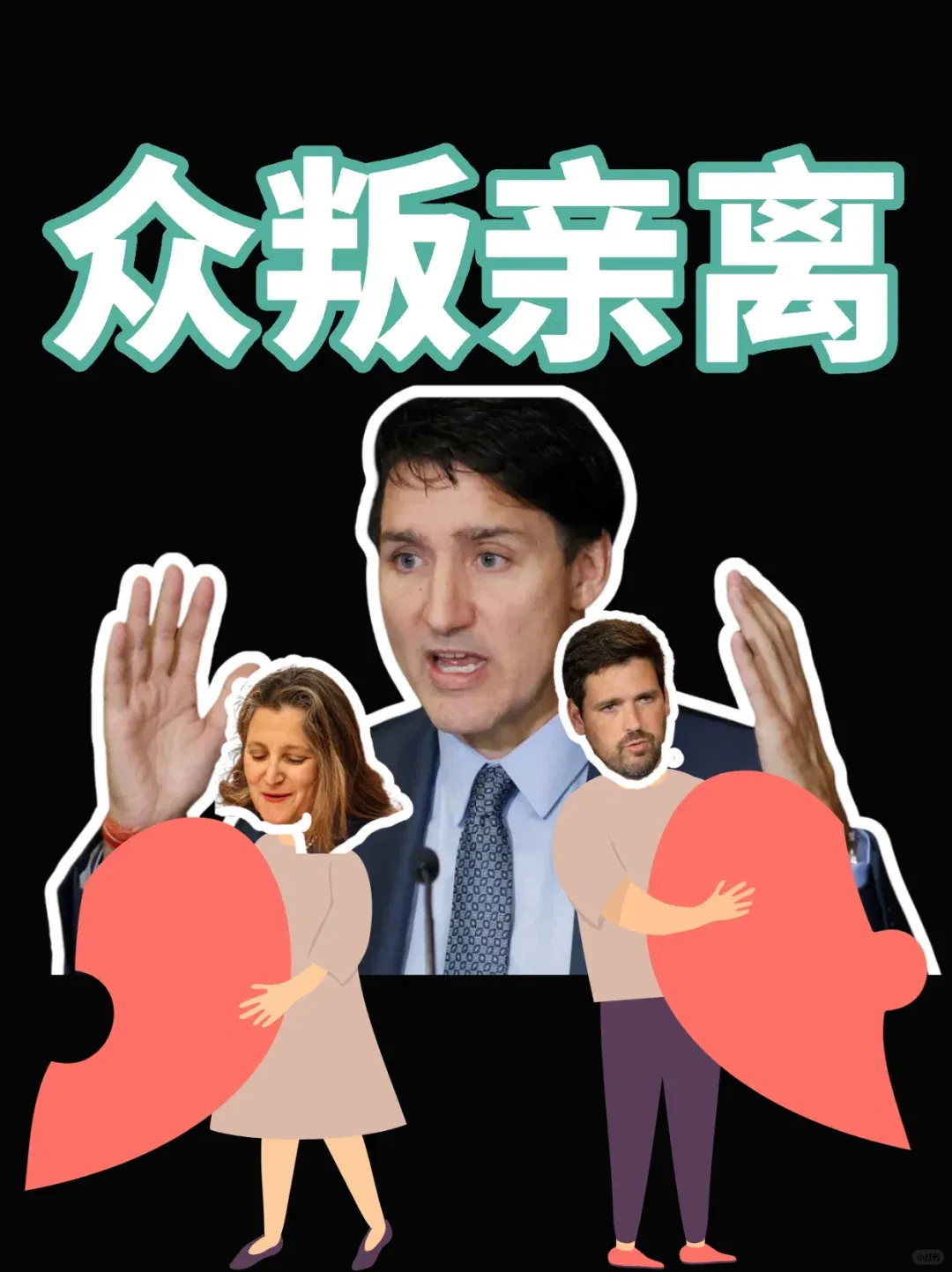
On December 16, Canada’s political scene was thrown into turmoil. Early in the morning, Finance Minister Chrystia Freeland’s shocking resignation ignited public debate, followed by New Democratic Party (NDP) leader Jagmeet Singh’s direct call for Prime Minister Justin Trudeau to step down, declaring, “He must go.” From cabinet infighting to opposition challenges, the Liberal minority government seems to be hanging by a thread. Will the next step be an early election or a complete collapse?
In the early morning, Chrystia Freeland announced her resignation on social media, stepping down as Finance Minister while also taking direct aim at Prime Minister Justin Trudeau. She called his request to reassign her to another cabinet role a “humiliating political arrangement.” Her statement quickly became headline news.

The timing of her resignation drew even more attention: Freeland was originally scheduled to release the fall fiscal report that day, which was widely expected to reveal that the government’s deficit had exceeded the CAD 40 billion target. Clearly, the “Iron Lady of Economics” refused to take the blame for Trudeau and opted to draw a clear line between herself and him.
Insiders suggest Freeland’s resignation is just the tip of the iceberg in the Liberal Party’s internal divisions. Because key cabinet members, including Housing Minister Sean Fraser, have announced they will not seek re-election, signaling a severe lack of confidence within the party.

Hours after Freeland’s resignation, NDP leader Jagmeet Singh delivered a bombshell statement to the media: “Trudeau is too focused on infighting and has no time to address Canadians’ struggles. He must resign.”

Singh’s words were scathing, directly blaming the government for failing to tackle the soaring cost of living, skyrocketing housing prices, and the looming threat of a 25% tariff from a Trump-led U.S. presidency. He warned, “We will consider all options, including supporting a no-confidence motion.”
Interestingly, the NDP has been a key ally of the Liberals, supporting their minority government through a “confidence and supply agreement.” Singh’s “betrayal” at this moment strips Trudeau of his last protective shield for governance.
Meanwhile, Conservative leader Pierre Poilievre seized the moment. Speaking to reporters outside Parliament, he declared, “The chaos and division within the Liberal government are putting Canada at risk. They are completely incapable of dealing with the economic shocks that Trump’s potential presidency could bring.”

Poilievre directed his criticism squarely at Trudeau, claiming he is being “saved by a single person”—a reference to Singh’s yet-unclear stance on supporting a no-confidence motion. He further added, “Trump can smell weakness from a kilometer away, and Trudeau is the embodiment of that weakness.”
The latest poll shows that Liberal support has dropped to 21%, while the Conservatives lead with over 40%. Liberal support has plummeted by 5 percentage points since September, while the NDP has gained 5 points.

“More and more progressive voters are beginning to see the NDP as a viable alternative,” said Ipsos analyst Darrel Bricker. The polling data makes it clear that Trudeau’s personal reputation and the Liberal Party’s governance are facing an unprecedented crisis.
根据加拿大选举法,下一次联邦大选最迟需在2025年10月举行,但当前的局势让提前大选成为一种可能。如果自由党在议会中失去信任投票,将被迫走向选举。而对特鲁多而言,这也可能是一个“体面退场”的方式。
Under Canada’s election laws, the next federal election is due by October 2025, but the current turmoil makes an early election a real possibility. If the Liberals lose a confidence vote in Parliament, they would be forced to go to the polls. For Trudeau, this could also serve as a “graceful exit.”

Adding to the intrigue, rumors have surfaced that Freeland may run for the Liberal leadership, further undermining Trudeau’s authority within the party. For Trudeau, the choices seem to boil down to two: fight to purge dissent within the party or resign voluntarily to avoid being forced out.
从内阁辞职潮到盟友反水,自由党正面临成立以来最严峻的危机。而无论最终结果如何,这场政治风暴将对加拿大的未来产生深远影响。对于普通加拿大人而言,唯一的共识或许是:这个冬天,不仅仅是天气冷,政坛更冷。
From cabinet resignations to allies turning against them, the Liberal Party is facing the most severe crisis in its history. Regardless of the outcome, this political storm will have a profound impact on Canada’s future. For ordinary Canadians, the only consensus might be this: this winter, it’s not just the weather that’s cold; the political climate is even colder.
What do you think about Trudeau’s future? Is an early election inevitable? Share your thoughts in the comments!








